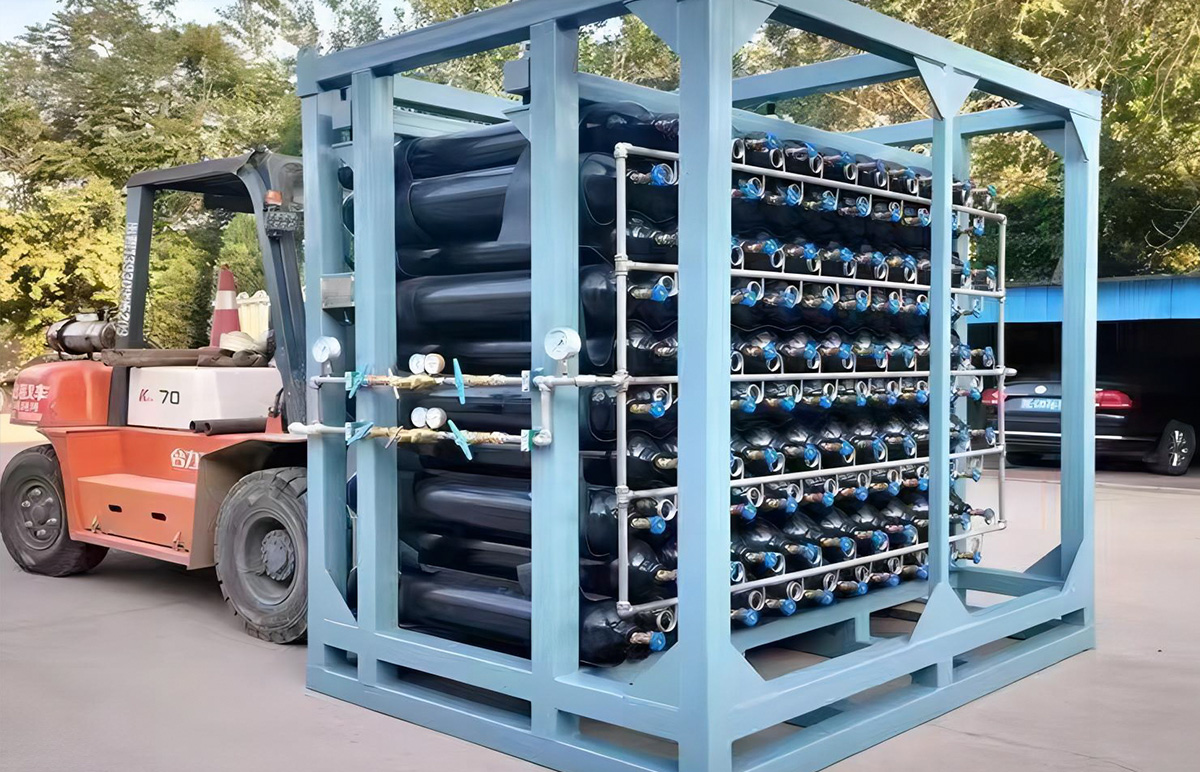Compressed Natural Gas (CNG) has emerged as a viable and environmentally friendly alternative to traditional fossil fuels in the automotive industry. At the heart of CNG-powered vehicles lies the CNG cylinder group, a critical component responsible for storing and supplying compressed natural gas to the engine. Huani Metal Material, as a leading provider in the industry, specializes in manufacturing high-quality CNG (Compressed Natural Gas) Cylinder groups that meet rigorous safety and performance standards. These cylinder groups, crafted from robust and durable materials sourced from Huani's extensive expertise, are designed to efficiently store and transport CNG, catering to the growing demand for eco-friendly fuel solutions. Huani Metal Material's commitment to innovation and precision engineering ensures that each CNG cylinder group is reliable, enhancing the operational safety and efficiency of vehicles relying on compressed natural gas as their primary fuel source.

Core Components and Design
Cylinder Construction
CNG cylinder groups consist of individual cylinders made from high-strength materials such as aluminum alloy or composite fiberglass-wrapped metal. These materials are chosen for their lightweight properties and ability to withstand high pressures, typically ranging from 200 to 3600 psi. The cylinders are designed with robust valves and pressure relief devices to ensure safe operation.
Group Configuration
Cylinder groups are arranged in various configurations depending on vehicle size and fuel capacity requirements. Common layouts include linear stacks, radial arrays, and underfloor installations. Each configuration aims to optimize space utilization while maintaining accessibility for maintenance and refueling.
Functional Efficiency and Safety
Enhanced Storage Capacity
One of the primary selling points of CNG cylinder groups is their enhanced storage capacity. By utilizing high-pressure technology, these groups can store a significant amount of energy in a relatively compact space. This enables longer driving ranges between refuelings, making CNG vehicles more practical for daily use.
Advanced Valve Systems
The valves in CNG cylinder groups are designed for precision control and safety. They include features like automatic shut-off valves, which prevent gas leakage in the event of an accident, and excess flow valves, which limit gas discharge if a hose becomes disconnected. These advanced valve systems contribute to the overall reliability and safety of CNG-powered vehicles.
Pressure Regulation
Efficient pressure regulation is crucial for smooth engine operation. CNG cylinder groups incorporate pressure regulators that reduce the high cylinder pressure to a level suitable for the engine’s fuel injection system. This ensures optimal fuel delivery and engine performance while protecting components from excessive wear and tear.
Environmental and Economic Benefits
Reduced Emissions
CNG cylinder groups play a pivotal role in reducing greenhouse gas emissions. Natural gas, primarily methane, burns cleaner than gasoline or diesel, producing fewer pollutants such as carbon monoxide, nitrogen oxides, and particulate matter. This makes CNG vehicles an attractive option for fleets seeking to minimize their environmental footprint.
Cost Savings
Another significant selling point is the cost savings associated with CNG. Natural gas prices are generally more stable and often lower than those of gasoline or diesel. Additionally, the durability of CNG cylinders and their components can lead to lower maintenance costs over the vehicle’s lifetime. Fleet operators, in particular, can realize substantial fuel cost savings by transitioning to CNG.
Innovations and Future Trends
Material Advancements
Ongoing research and development in materials science are driving innovations in CNG cylinder design. Newer composite materials offer even higher strength-to-weight ratios, enabling the creation of lighter, more efficient cylinders. These advancements not only improve fuel efficiency but also contribute to overall vehicle performance and range.
Intelligent Monitoring Systems
The integration of intelligent monitoring systems is another trend shaping the future of CNG cylinder groups. These systems use sensors to continuously monitor cylinder pressure, temperature, and fuel levels, providing real-time data to drivers and fleet managers. Predictive maintenance algorithms can then analyze this data to preemptively identify and address potential issues, reducing downtime and maintenance costs.
Hydrogen Compatibility
As the hydrogen economy evolves, CNG cylinder manufacturers are exploring the potential for dual-fuel or hydrogen-compatible cylinder groups. This versatility could pave the way for a smoother transition to zero-emission vehicles, allowing fleets to leverage existing CNG infrastructure while preparing for the adoption of hydrogen fuel cells.
Conclusion
CNG cylinder groups are instrumental in the adoption and success of natural gas as an alternative fuel for transportation. Their advanced design, efficient functionality, and numerous benefits make them a compelling choice for both individual consumers and fleet operators. As technology continues to advance, CNG cylinder groups will only become more efficient, safer, and adaptable, further solidifying their role in the sustainable future of mobility.
https://www.huanigroup.com/understanding-the-functionality-of-cng-cylinder-groups.html
www.huanigroup.com
ShanDong Huani Metal Material Co.,Ltd.
